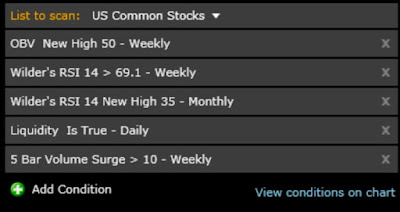How many times have we been told to sell our losers and let our winners ride. And that losing traders sell winners too quickly.
Those conclusions are even backed up by
research. And, as academics tend to do it's given a fancy name-- the disposition effect.
Per wikipedia:
"The disposition effect is an anomaly discovered in behavioral finance. It relates to the tendency of investors to sell shares whose price has increased, while keeping assets that have dropped in value"
The study also concluded that Investors are more likely to take a small gain than a small loss.
Gosh, is that all there is to it? We just need to sell our losses quickly and let our winners become bigger winners.
Here's the problem with academia and mantras. When we enter a trade, we don't what is going to become a winner, a big winner, or a loser. If we did, we wouldn't have entered the trade. Rarely does a trade go straight up and become a big winner. -- They go up, then down then down some more then up and so forth.
Many times I've had a small winner reverse to a loser. I've had big winners reverse to a small winners. I've had big winners become bigger winners. We can't control what the stock does once our position is on we control only what we do.
One thing you can control is whether a small losses becomes a big loss. Small losses keep you in the game. Learn to love them. Also, don't fear small gains. I take small gains all the time. I can make the argument, that by taking a small gains I'm avoiding a loss (big or small) altogether. I came to that conclusion after finding myself embarrassed to take a small gain because it was small.-- I know I'm not the only one as Mark Douglas talked about his own issues with taking small gains in Trading with Discipline-- only to see those small gains become small losses. If the trade isn't working get out with profit if you can. Small gains are better than small losses.
Plan your exits. I know where my stop losses are where I will get out for a small loss that's the easy party.-- and the most critical. The harder part is where to take profits. When I take a trade, I know how I want it to act or behave. If it doesn't do what I thought it would, a small gain can be the right decision. For example, If I take a breakout and I expect it to get through a certain level and if it struggles I'll sell a portion. Or, If the market presents an opportunity for a profit-- take some of it. The stock may still be a winner, or even a big winner, for someone else but it wasn't my trade.
The point is its impossible to know what is going to be big winner. But we can prevent big losers. My conclusion is cut the losers quickly and the winners will take care of themselves.

